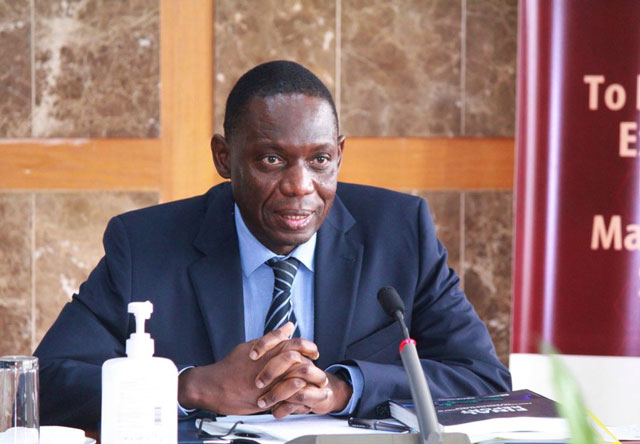Leaders in the banking industry say that they have failed to identify people who qualify for the government’s COVID-19 relief fund meant for small and medium enterprises. It comes a few days after the Bank of Uganda revealed that only Shillings 6 billion out of the Shillings 200 billion Small Business Recovery Fund (SBRF), which was launched in July 2021 has been disbursed.
BOU Governor, Michael Atingi-Ego says this is a very low performance considering that there is a big need for the money by SMEs who were badly hit by the lockdowns in 2020 and 2021. He says some of the reasons given by the participating financial institutions, including the fact that most of the applications are for small loan amounts, are not convincing enough for the low performance.
There are at least 22 participating institutions out of the 33 that qualify, and BOU says this is one of the reasons few people have accessed the money. One of the main accusations against the banks by the private sector is that the lenders are not open about this fund and many people do not know about it.
John Kakungulu Walugembe, the Chief Executive of the Federation of Small and Medium Enterprises Uganda, says that the banks intentionally present their highly-priced commercial products to the borrowers, and ‘hide’ the government fund, which carries a 10 percent interest.
However, one of the participating banks, Stanbic Bank, says they have the money but that the qualifying borrowers are very few. James Junguru, the Manager, of Enterprise Direct at Stanbic Bank, says the borrowers must have collateral and be ready to pay it back.
Deputy Governor, Atingi-Ego says almost all SMES suffered mainly because of movement restrictions imposed by the government to prevent the spread.
According to Junguru, since the money is a COVID-19 rescue fund, the beneficiaries must be those whose enterprises were affected by the pandemic. This means that an applicant must prove that before the outbreak, the business was doing well, either stable or growing, but that during the two years, and because of the lockdowns, the performance of the business declined.
This can only be done through the presentation of bank statements before, during, and after the height of the pandemic period or audited financial records. He says that they are aware most companies suffered but that they must provide proof that a company was doing well but declined in performance because of the pandemic.
Junguru told this to a group of young entrepreneurs who benefitted from the Enterprise Development Program at the Stanbic Business Incubator, which aims at skilling startup and SME entrepreneurs. Apart from the management skills, the beneficiaries are also given ways how they can access the different sources of funds appropriate for their financial needs, as a way of helping SMEs survive and grow.
The incubator has received funding to support the training of over 500 entrepreneurs over a period of six months. Tony Otoa, the SBIL Chief Executive said, “Priority was given to female-owned enterprises. However, to qualify for the training, these businesses had to prove that they had been in existence for more than two years, have at least five employees, and are operating within Kampala, Mukono, and Wakiso.”
The Enterprise for Development focuses on key sectors including agribusiness, food and beverages, trade, professional services, power infrastructure, consumer goods and supplies, green businesses, tourism, hospitality and catering services, construction, fabrication and civil works, transport, and logistics and health.
![]()




























